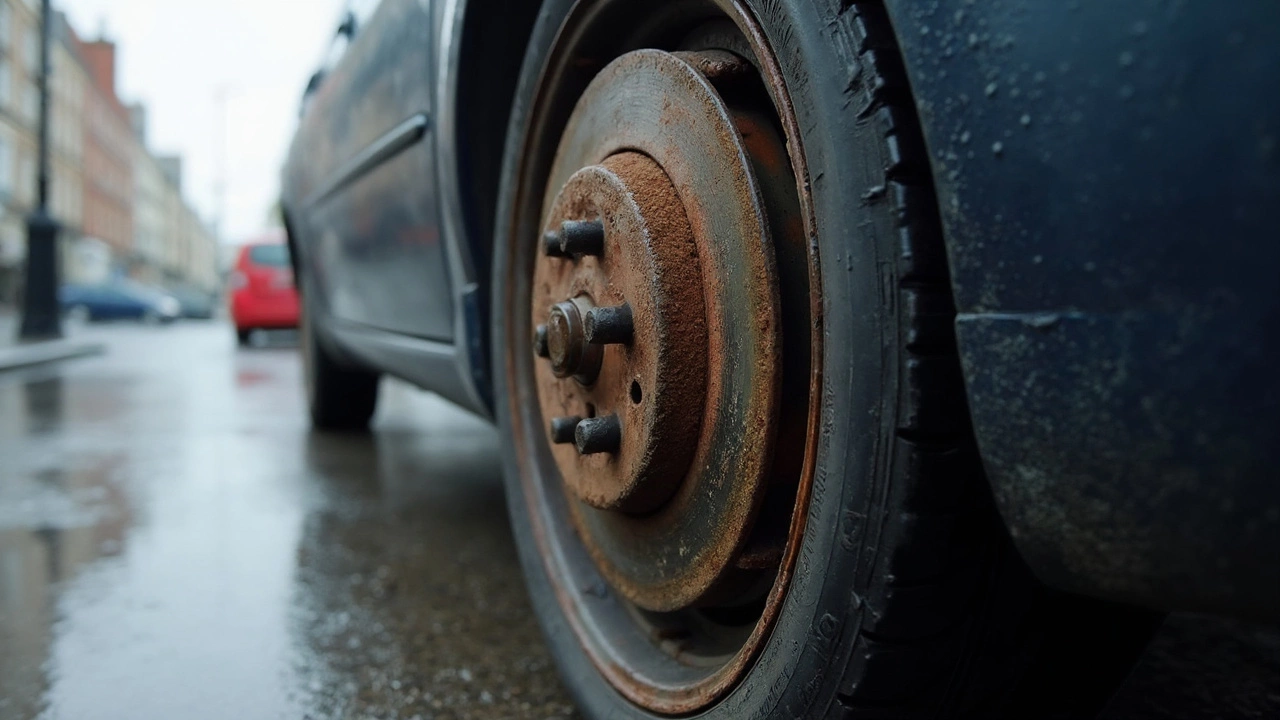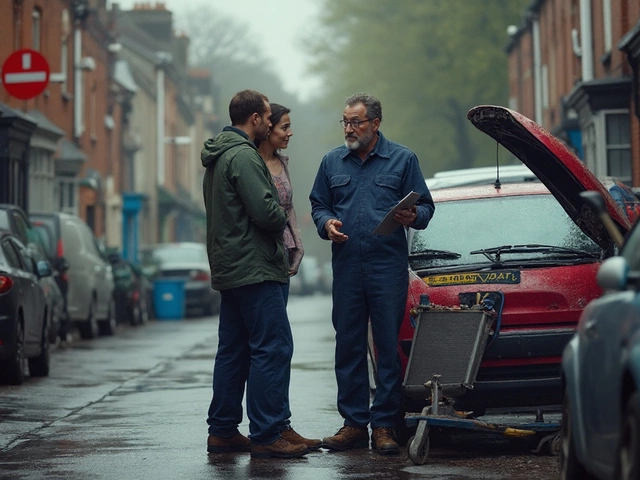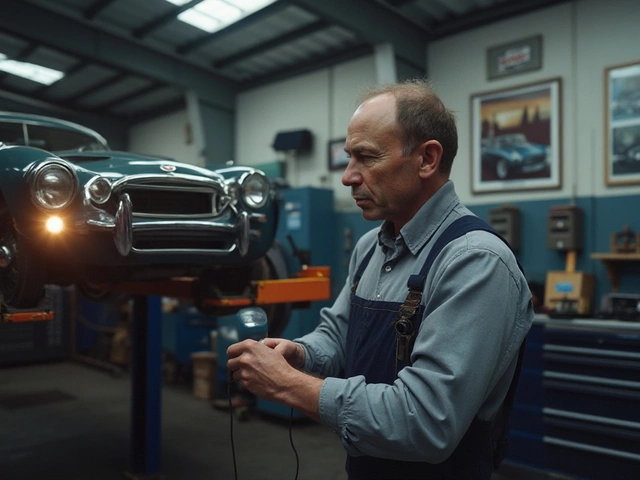Rotor Symptoms: What Your Brakes Are Trying to Tell You
When you hear a squeal or feel a shudder as you press the pedal, the rotors are probably the culprits. Rotors are the metal discs that the brake pads squeeze to slow your car. If they get warped, cracked, or too thin, you’ll notice it right away. Ignoring the signs can lead to costly repairs or even a loss of stopping power.
Common Signs Your Rotor Needs Attention
First up, a pulsating brake pedal. If the pedal vibrates every time you brake, the rotors are likely warped. You’ll feel a wobble that gets stronger the harder you press. Another giveaway is a high‑pitched squeal that fades when you press harder – that’s brake pads wearing thin, but it also means the rotor surface is uneven.
Next, listen for a grinding noise. A constant grinding sound means the brake pads have worn down to the metal backing, grinding against the rotor. That metal‑on‑metal contact can score the rotor, making it rough and unsafe. You might also notice a thick, pulsing feel in the steering wheel when you brake, especially on one side only – that points to a warped rotor on that wheel.
What to Do When You Spot Rotor Problems
The quickest fix is to have a professional measure rotor thickness. If it’s below the minimum spec, the rotor must be replaced. Sometimes, a simple resurfacing can smooth out minor warps, but it’s only an option if there’s enough metal left. Replacing both rotors on an axle is often smarter; you get balanced braking and avoid uneven wear.
If you catch the symptoms early, you can save money. Swapping out worn pads before they hit the metal backing prevents rotor scoring. Also, keeping your wheels clean helps – brake dust can hide cracks and make it harder to spot problems. A quick visual check while the wheels are off can reveal cracks, rust spots, or discoloration.
Don’t forget to check your brake fluid too. Low fluid can cause the caliper to stick, which puts extra heat on the rotor and speeds up warping. Top up or flush the fluid every two years to keep the whole system working smoothly.
Bottom line: rotor symptoms show up as vibration, squeal, grinding, or uneven pedal feel. When you notice any of these, book a brake inspection right away. A small fix now prevents a big repair later and keeps you safe on the road.
 27 May 2025
27 May 2025
How to Tell If Rotors Are Bad: Easy Signs Your Brakes Need Help
Rotors are easy to ignore, but worn or damaged ones can make your car unsafe and cost you more in repairs. This article breaks down the most common signs your rotors are bad, what those symptoms actually mean, and how to check them yourself. You’ll get clear tips so you know when it’s time for new rotors or just a simple fix. Learn why paying attention to rotor health saves money—and maybe even an accident. Don’t wait until your brakes fail in traffic.
Tags
- car maintenance
- engine oil
- spark plugs
- brake pads
- engine performance
- vehicle maintenance
- spark plug replacement
- windshield wipers
- fuel pump
- suspension parts
- clutch replacement
- oil change
- clutch kit
- car suspension
- car performance
- air filters
- car radiator
- exhaust systems
- fuel pump replacement
- engine misfire






0